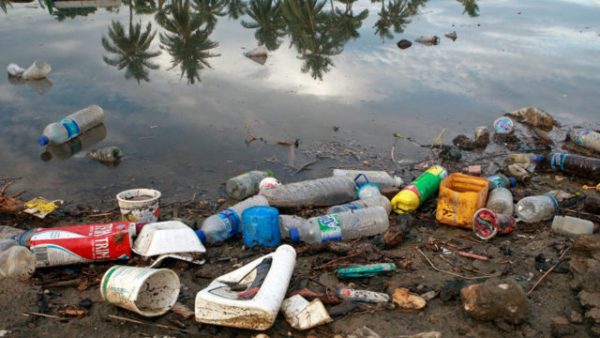 • Poses threat to blue economy agenda
• Poses threat to blue economy agenda
As the global shipping industry continues to tackle the menace of plastics waste on waters, facts have emerged that about $13 billion are lost to damage caused to the marine ecosystem by plastic pollution.

This, according to stakeholders is posing threat to the realization of the blue economy agenda. Indeed The International Maritime Organisation (IMO) had warned that unless the shipping companies and crew comply fully with rules on reducing marine plastic litter from vessels, the quantity of plastics in the oceans will outweigh fishes by 2 050.
IMO said it had received warnings from some scientists on the huge problem in the oceans, and its future impacts on environment.

The marine plastic litter recently hit the front burner, when the Africa Blue Economy Forum (ABEF) revealed that plastic pollution alone costs $13 billion a year in damages to marine ecosystems.

The forum in its documents detailing its preparation for the 2019 edition in Tunis, said: “90 per cent of ocean plastic waste originates from Asia and Africa, mainly due to mismanagement of waste and can be traced to just 10 rivers, including river Niger,”
According to ABEF, oceans are increasingly being recognised as a major driver of the world’s economic development, but conservative estimates for the next 12 years suggest that the ocean economy would add yearly global value of around $3 trillion and contribute some 40 million direct fulltime jobs to the global labour market.
It noted that African governments have a major role to play in tackling ocean pollution and plastic waste in particular, noting that Africa is the second largest continent with 26,000 nautical miles of coastlines and maritime zones under its jurisdiction, totaling 13 million km2.
It stressed that linking the issue of ocean pollution with the blue economy development approach could help meet its targets set out in the United Nations Sustainable Development Goals (SDGs and the Africa Union’s Vision 2063).
Founder & CEO, Blue Jay Communication, Mrs Leila Ben Hassen, said among the important actions to achieve a sustainable blue economy was to strengthen pan-African partnerships and encourage more international collaboration.
“Hence we have decided to focus in this edition on developing more synergies between private and public sectors, between regional and international companies, attracting experts and investors in the blue economy sectors, and, ultimately, creating more job opportunities for Africa’s youth and women,” she stated.
Meanwhile, the IMO had adopted an action plan, which aims to enhance existing regulations, and introduce new supporting measures to reduce marine plastic litter from ships.
United Nation’s Environment estimates that 15 per cent of marine litter floats on the sea’s surface, 15 per cent remains in the water column and 70 per cent rests on the seabed.
According to another study, about 5.25 million plastic particles, weighing 268,940 tonnes in total, are currently floating in the world’s oceans.
Another concerned agency, Ocean Unite stated: “The vast swirls of plastic rubbish visible on the sea surface – horrifying as they are – represent just the tip of the iceberg. What lies beneath are the masses of micro beads and broken-down particles of plastic that are easily ingested by sea creatures, and impossible to remove.
“The urgently needed solution calls for a combination of enhanced awareness, reduced plastic use, and massively improved waste management. The most effective way to have less plastic in the Ocean is to use less plastic in the first place,” it stated.
 MMS PLUS NG – Maritime, Aviation, Business, Oil and Gas News Online Newspaper with coverage in Maritime, Oil and Gas, Aviation, Power and Energy as well as Financial News
MMS PLUS NG – Maritime, Aviation, Business, Oil and Gas News Online Newspaper with coverage in Maritime, Oil and Gas, Aviation, Power and Energy as well as Financial News









